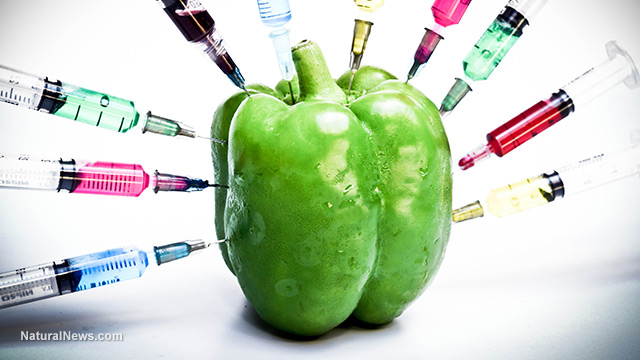Genetically Modified Organisms, more commonly referred to as GMOs, are found in most foods that we eat everyday. GMOs have been in our foods since the mid 1990s. You may be wondering what exactly GMO foods are. GMO foods are normal foods that have been genetically modified to make plants more resistant to herbicides, drought, or disease. In some cases, plants are modified to add extra nutritional value. Some of the most common foods that are genetically modified include corn, soy, yellow squash, zucchini, and alfalfa. 85% – 90% of all corn grown in the United States is GMO corn. It has been modified to be more resistant to survive pesticides which are used to kill weeds in the farms. Prior to this, many corn crops would have died and/or succumbed to blight, hence reducing the amount of corn available in the market. In the case of the soy plants, the plants were modified to contain higher levels of oleic acid which is commonly found in olive oil and has been shown to reduce LDL, (aka “bad”) cholesterol.

Many people believe that because foods are genetically modified, they are harmful to humans and unsafe to eat. A lot of these beliefs also stem from scientific studies but issues arise when some studies are not conducted properly and when people misinterpret the studies’ results. Some of the reasons, listed on geneticliteracyproject.org written by Layla Katiraee, that people believe GMOs are bad for health (found here) are that the genetically modified DNA of the food might genetically modify their own DNA, GMOs that are toxic to lab animals will also be toxic to humans, etc.
One such improper study (only the abstract is available) found on the National Center for Biotechnology Information was especially interesting to me. The study was an experimental study where the lab measured the effects of pure glyphosphate, a common herbicide used in farming, on estrogen receptors mediated transcriptional activity and their expressions. The experiment was that two breast cancer cell lines, one estrogen sensitive and one not, and exposed them both to levels of glyphosphate that are commonly used in agriculture. This study seemed to come to the conclusion that the estrogen sensitive cancer cell line promoted more growth of the cancer cells than the cell line that was not estrogen sensitive. However, the breast cancer cells themselves require estrogen to grow so it was not the glyphosphate which was promoting cancer cell growth but the estrogen sensitivity of the cancer cell line itself. Monsanto, a massive agriculture and biotechnology company, wrote a response directed at the results if the previously mentioned study explaining why readers should not believe that glyphosphate causes cancer. In the experiment, the tests were done on preexisting cancer cells which simply developed further due to the estrogen sensitivity, and that no further cancerous cells were formed directly because of glyphospahte exposure. The geneticliteracyproject.org article also cited another experimental study found on the NCBI website. This experiment actually involved eight different human cancer cell lines and found that exposure to glyphosphate actually arrested further cancerous cell development. I do not think it is safe to say that the first study fell victim to the Texas Sharpshooter problem since the data suffered more from technical issues, but it is clear to see how many people can misinterpret the conclusion of a study regardless if it was conducted well or not.

All this being said, there are some genuine concerns with GMOs and how they can negatively affect the environment. Some of the concerns that not only anti-GMO activists but also some GMO scientists have is that over time, the genetically modified plants will affect the soil in which the plants are being grown. Because many plants are modified to be resistant to herbicides which are sprayed across all crops in a field to kill unwanted plants such as weeds. However, these weeds and other flowering plants are essential for bees and other insects to pollinate to survive. With all of these plants slowly disappearing due to GMO farming, it can seriously disrupt ecosystems that are essential to the environment and planet. Another issue with GMO farming is the fact that it has not been around long enough to study its long term effects. It is hard to predict if there will be any severe long term negative effects on not just the environment but also humans and other animals. This can only be determined by observing the effects of GMOs over time.
Images:
http://www.naturalnews.com/gallery/640/GMOs/GMO-Bell-Pepper-Injections.jpg

I try to stay away from foods with GMOs as I know they cause health disruption. I wondered if there were any health benefits to food grown with GMO’s beside larger produce. According to a GMO website, foods grown with this method have more flavor and more nutritional value than all natural products while making better use of the land that they’re grown in. This is a biased source, but I thought that the data they provided was worth a look. Here is the link to the GMO website https://classes.soe.ucsc.edu/cmpe080e/Spring05/projects/gmo/benefits.htm